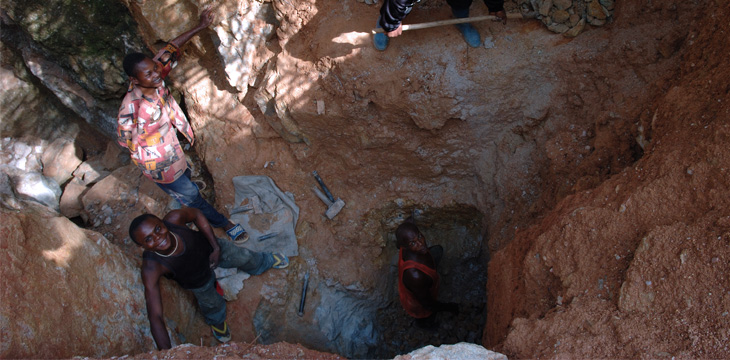|
Getting your Trinity Audio player ready...
|
The Democratic Republic of Congo has become infamous for the civil wars and political instability it has faced for decades. However, the country is also one of the richest globally when it comes to minerals. One of these is tantalum, a transition metal used in the manufacture of capacitors. These minerals have been the subject of conflict between the government and armed militias, while also attracting inhumane practices such as child labor. All this could change now, with Congo turning to blockchain technology in the battle against conflict minerals.
Multinationals such as Samsung, Tesla, Apple and Ford rely on tantalum in the manufacture of their products, but for the longest time, it’s been almost impossible for them to trace the source of this mineral. This is changing, with companies such as Berlin-based supply chains auditor RCS Global developing tracking technology that can trace the tantalum from the moment it’s mined as coltan ore.
In the current setup, the end users rely on paper certification to prove the tantalum they use isn’t mined inhumanely. This kind of certification is easy to forge and with regulatory agencies globally becoming more stringent, digital certification has been a godsend.
In Southern Congo, RCS has partnered with global players such as IBM and Ford to trace cobalt, yet another mineral which Congo is a lead producer. Cobalt is used in the production of lithium-ion batteries. This tracking system uses blockchain technology, relying on its immutable nature to trace the cobalt throughout the supply chain.
While the application of blockchain technology throughout Congo could solve the country’s challenges in its mining sector and enlarge its market share, there have been challenges that have prevented the application of the technology. They include poor infrastructure in the country and the high costs involved.
According to a Reuters report, the funding for the blockchain application comes chiefly from the local members including miners, smelters and traders. The big multinationals that benefit the most from the initiatives have not contributed, Ferdinand Maubrey, the managing director at RCS revealed to Reuters.
He remarked, “Downstream companies and industry groups … are unwilling to pay to support measures that improve working conditions at mine sites.”
Other challenges include the authenticity of the data that’s entered into the blockchain-powered system. If the government officials charged with tagging the minerals collude with smugglers, the data recorded wouldn’t be authentic.

 02-22-2026
02-22-2026 




